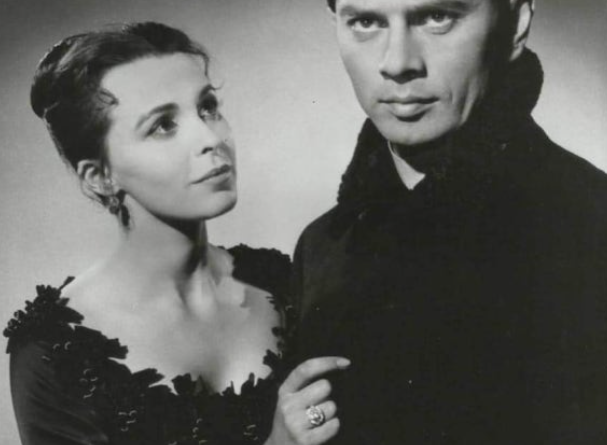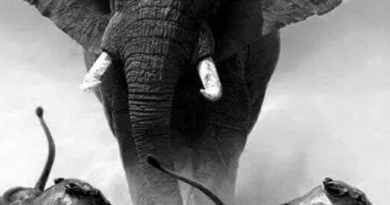대 배우, 율부리느 이야기!
1923년, 율 브리너가 세 살이었을 때, 그의 아버지는 모스크바 예술극장에서 한 여배우와 바람을 피우고 가족을 버렸습니다. 어쩌면 그 마음의 상처가 남아서 그를 이 우울하고 극도로 사적인 사람으로 만들었을지도 모른다. 남편이 그녀를 떠난 후, 그의 어머니인 마루시아는 두 자녀를 데리고 중국 하얼빈으로 가서 YMCA 학교에 다녔습니다.
1932년경 일본과 중국 사이의 긴장이 고조되는
것을 감지한 마루시아는 임박한 전쟁을 피하기 위해 가족과 함께 파리로 이주했습니다. Brynner는 공연 예술에만 참여하고 싶었습니다. 그는 학교를 중퇴하고 유명한 서커스에서 공중 그네 예술가로 일했습니다.
서커스 5년 차에 브린너는 허리 부상을 입어 선수 생활을 마감했습니다. 한편 그는 파리의 러시아 나이트클럽에서 기타, 주로 집시 노래를 연주했습니다. 1938년에 마루시아는 백혈병 진단을 받았고 가족은 잠시 중국 하얼빈으로 돌아갔습니다.
1940년에 Brynner와 그의 어머니는 그의 여동생과 함께 미국으로 이주했습니다. 미국 전쟁 정보국에서 프랑스어를 사용하는 라디오 해설자로 일하면서 그는 러시아계 미국인 배우 마이클 체호프의 지도를 받으며 독일이 점령한 프랑스에 방송했습니다.
1941년 브린너는 ‘Twelfth Night’에서 그의
첫 브로드웨이 쇼를 공연했습니다. Mary Martin과 함께한 그의 다음 연극 ‘Lute Song’은 그에게 약간의 호평을 받았지만 Martin과의 우정은 나중에 그의 경력에서 가장 큰 연기 역할을하게되었습니다.
1944년에 그는 네 명의 아내 중 첫 번째와 결혼하고 CBS에서 영화 및 TV 감독으로 경력을 시작했습니다. 그의 연출 데뷔작은 어린이 인형극이었고 이후 스튜디오 원 인 헐리우드(1948)로 영화를 성공적으로 연출하며 자신의 입지를 굳혔습니다.
1950년 마틴은 브리너에게 ‘왕과 나’ 오디션을
보도록 권유했습니다. 처음에는 무대로 돌아가는
것을 꺼렸던 그는 몽쿳 왕이라는 캐릭터에 매료되어 1951년 오리지널 브로드웨이 프로덕션에 합류했습니다. 브리너는 머리를 밀어달라는 요청을 받았고 그 이후로 머리를 계속 깎은 것이 그의 가장 주목받는 트레이드마크가 되었습니다.
율 브리너(Yul Brynner)는 몽쿳 왕 역을 맡아
두 개의 토니상을 수상하며 센세이션을 일으켰습니다. 그는 1956년 영화 이전에 이 역할을 4000번 이상 반복했으며 아카데미 남우주연상을 수상했습니다. 그는 수락 연설에서 다음과 같은 유명한 말을 했습니다.
“이게 실수가 아니길 바라요. 세상 그 무엇으로도 돌려주지 않을 테니까요. 정말 감사합니다.”
이후 20년 동안 브린너는 ‘솔로몬과 시바(타이론 파워를 대체함)'(1959)와 ‘매그니피센트 7′(1960)을 포함해 40편이 넘는 영화에 출연했습니다. 이국적인 외모로 인해 그는 주로 왕, 이집트 파라오, 서양 총잡이 등 강력한 주연에 캐스팅됐다.
Brynner는 뛰어난 사진작가이자 2권의 책을
집필한 작가이자 기타리스트이기도 했습니다.
율 브리너(Yul Brynner)는 UN 난민 우표 수집에
대한 관심에서 비롯된 난민 문제에 열정적이었습니다. 이로 인해 그는 UNHCR의 난민 특별 자문관직을 맡게 되었습니다. 그의 명성은 아시아에서 중동에 이르기까지 전 세계의 고통에 대한 인식을 가져왔습니다.
Brynner는 12세에 흡연을 시작했고 1971년까지 연속흡연을 했습니다. 1983년에 그는 수술이 불가능한 폐암을 앓고 있었으며 3개월의 시한부 시한을 선고받았습니다. 그는 1985년 6월 <왕과 나> 4,625회 공연을 마쳤고 몇 달 뒤 세상을 떠났다.
Brynner는 사망하기 전에 금연 캠페인을
녹음했으며신랄하게 말했다:
“이제 내가 떠났으니, 담배를 피우지 마세요.
무슨 일을 하든 담배를 피우지 마세요. 담배를
끊을 수 있다면 우리는 암에 관해 이야기하지
않을 것을 확신입니다.”
In 1923, when Yul Brynner was just three, his father had an affair with an actress at Moscow Art Theatre and then abandoned his family. Perhaps the emotional scars remained and made him into this brooding and intensely private person. After her husband left her, his mother, Marousia, took her two children to Harbin, China where they attended a YMCA school.
Circa 1932, sensing the rising tensions between Japan and China, Marousia moved her family to Paris to avoid the impending war. Brynner only wanted to be in the performing arts. He dropped out of school and worked as a trapeze artist in a famous circus.
During his 5th year in the circus, Brynner suffered a back injury, ending his career. Meanwhile, he played guitar, primarily Gypsy songs, at Russian nightclubs in Paris. In 1938, Marousia was diagnosed with leukaemia and the family briefly moved back to Harbin, China.
In 1940, Brynner and his mother emigrated to the US joining his sister. Working as a French-speaking radio commentator for the US Office of War Information, he broadcasted into German-occupied France while studying under the tutelage of Russian-American actor, Michael Chekhov.
In 1941, Brynner performed his first Broadway show in ‘Twelfth Night’. His next play, ‘Lute Song’ with Mary Martin only won him mild acclaim but his friendship with Martin would later bring him the biggest acting role in his career.
In 1944, he married the first of four wives and began his career as a film and television director at CBS. His directing debut was a children’s puppet show and then established himself, successful directing films as ‘Studio One in Hollywood’ (1948).
In 1950, Martin encouraged Brynner to audition for ‘The King and I’. Initially reluctant to return to the stage, he was fascinated with the character of King Mongkut and joined the original Broadway production in 1951. Brynner was asked to shave his head and since then, he kept his head shaved becoming his most notable trademark.
Yul Brynner was sensational as King Mongkut, winning two Tony Awards. He reprised the role over 4000 times before the 1956 film and won an Academy Award for Best Actor. In his acceptance speech, he famously said:
“I hope this is not a mistake, because I won’t give it back for anything in the world. Thank you very much.”
For the next two decades of his career, Brynner starred in over 40 films including ‘Solomon and Sheba’ , (replacing Tyrone Power) (1959) and ‘The Magnificent Seven’ (1960). Due to his exotic good looks, he was typically cast in strong leading roles such as kings, an Egyptian Pharaoh and a Western gunslinger.
Brynner was also an accomplished photographer, author of 2 books and a guitarist.
Yul Brynner was passionate about refugee issues which arose from his interest in collecting United Nations Refugee stamps. This led to him taking up the post as Special Consultant on Refugees for the UNHCR. His fame brought awareness to the sufferings I around the world from Asia to the Middle East.
Brynner began smoking at the age of 12 and chain smoked until 1971. In 1983, he was suffering from inoperable lung cancer and given three months to live. He ended the 4,625th show of The King and I in June, 1985 and died a few months later.
Brynner recorded prior to his death an anti-smoking campaign and
poignantly said:
“Now that I’m gone, I tell you: Don’t smoke, whatever you do, just don’t smoke. If I could take back that smoking, we wouldn’t be talking about any cancer. I’m convinced of that.”




